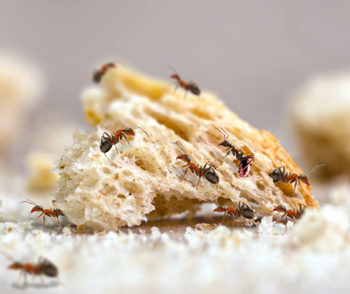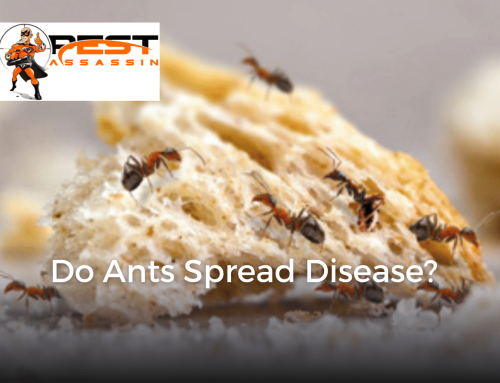Though seemingly little at first glance, anthills may swiftly grow into a major nuisance if not dealt with promptly. House ants and other microscopic pests may be a real pain to deal with because of all the trouble they create. The key to keeping persistent ant colonies from becoming a greater problem is understanding how to treat them. Here we’ll go over several strategies for dealing with these little pests so they don’t take over your home.

Understanding Small Ant Species and Their Habits
A number of species of tiny ant are known to infest homes. House ants are common because they can squeeze into tight spaces, such as crevices in walls or windows. Foraging for food in kitchens or other locations with plenty of crumbs and spills, these ants are often dark or black in color. Argentine ants are another frequent kind; they may establish huge colonies anywhere, even in people’s homes.
The queen or queens of a colony of these gregarious ants serve as the leader of the colony. Because finding food is their first priority, they like to congregate in places where sweets, oil, and pet food are easily accessible. If you want to know how to regulate or get rid of them, you need to study their habits and nesting preferences.
Identifying and Locating Ant Colonies
When planning an ant control strategy, the first thing to do is look for telltale symptoms of an infestation. Ants can be scurrying over your counters, walls, or floor. This should be your first focus in the event that you have an ant problem. The presence of tiny nests or mounds of detritus, both of which are typical in anthills, are further telltale signals.
If you follow the ant track, you can find the nest precisely. You may find the entrances to their nests by following the paths that ants use while going from their food source to them. Targeted treatments may be used to destroy the colony and prevent its reappearance after its source has been identified.
Effective Non-Chemical Control Methods
Many methods exist for keeping ants out of your home that do not involve the use of toxic pesticides. Proper cleaning is an excellent strategy. Your kitchen and dining areas will remain ant-free if you wipe down surfaces, seal food containers, and wipe up spills.
Ants may also be repelled by physical obstacles. Protect your home against ants by caulking the cracks around entry points including doors, windows, and baseboards. If you want to keep ants out of your home, you should repair broken screens on doors and windows.
Natural repellents also provide sustainability and safety. To keep ants at bay, try using peppermint, citrus scents, or vinegar. If you want to keep ants out of your home, you may spray a mixture of water and vinegar along their scent trails and entry points.
Utilizing Chemical Control Methods
Unfortunately, not all infestations respond well to non-chemical treatments. Chemical treatments may work better in situations of severe ant infestations. Ant baits are a typical tool for exterminating ant populations. In order to eliminate the queen and any other ants in the colony, workers carry poisoned baits back.
On the other hand, you might get quick relief with pesticide sprays. You may use these sprays on trails or nests, and they kill ants instantly. If you are concerned about the safety of your children or pets, it is imperative that you read the guidelines thoroughly.
It may be necessary to seek the help of a pest control specialist for infestations that are larger or more persistent. They are well-equipped to identify the problem and provide a long-term resolution.
Preventing Future Ant Infestations
After removing ants, you must prevent their return. Keeping up with home maintenance is a fantastic strategy to keep ants at bay. Check your house for ants and act if you see them. Re-seal any gaps or crevices you missed.
Your home’s landscaping may help deter ants. Ants utilize nearby shrubs and trees as bridges to access your property, so trim them. Moist mulch attracts ants, so keep it dry around your foundation.
Make your home less inviting to ants by eliminating their food and water sources. Put food in sealed containers, patch leaks, and clean up spills and crumbs immediately. Ants are less likely to nest in your home with less supplies.
No More Ants: The Ultimate Guide to Conquering Persistent Infestations
Coping with ants isn’t as big of a deal as it seems; these little pests can cause major problems if you don’t get rid of them. It is essential to identify house ants or any other species of ant as soon as possible and take immediate action to avoid a full-blown infestation. Ant removal and management can be achieved through the use of a mix of chemical and non-toxic approaches. If you want your ant problem solved for good, the best course of action is to keep the area clean and take precautions so the ants don’t come back.
Whether it’s a persistent ant problem or something else entirely, Pest Assassin can assist! To get rid of infestations and stop them from happening again, our professional team offers quick and effective solutions. Getting rid of pests in your home can start with a free inspection, so don’t hesitate to contact us.


